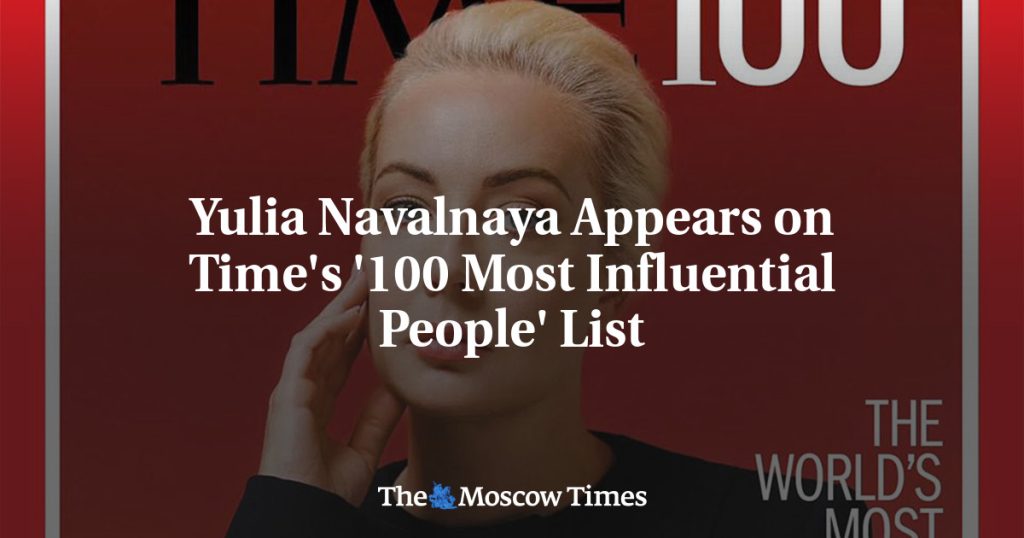Yulia Navalnaya, widow of Russian opposition activist Alexei Navalny, has been named one of Time magazine’s 100 most influential people. She entered politics to give hope to her husband’s supporters and to show the Kremlin that his death will not end the anti-Putin resistance. Navalnaya expressed frustration with Western leaders for avoiding sanctions on President Putin’s inner circle, stating that these sanctions would have a greater impact on Putin’s power. She described Putin as a “gangster” leading an organized crime group with criminals in his inner circle.
U.S. Vice President Kamala Harris praised Navalnaya’s leadership on the world stage, stating that her commitment to opposing the Kremlin has given hope to those striving for a democratic and corruption-free Russia. Navalnaya led thousands of Russians in a demonstration against Putin on the final day of Russia’s presidential election and stated her team’s intention to work with the international community to not recognize Putin as a legitimate leader following his victory. The Kremlin has painted Navalnaya as an out-of-touch exile and Russian state media have launched personal attacks against her, focusing on her appearance and actions after her husband’s death.
Navalnaya dismissed concerns over whether Putin fears her, but acknowledged the propaganda campaign against her by the Russian state, generating false news to create an enemy. Despite the attacks, she remains committed to her cause and to challenging the authoritarian regime in Russia. Navalnaya’s determination and resilience have earned her a place on Time’s list of influential figures, recognizing her as a symbol of democratic values and a courageous fighter for freedom and democracy. Harris affirmed the United States’ support for Navalnaya and all those working towards a free and transparent Russia.
The interview with Time marks Navalnaya’s first public appearance since her husband’s death in a Russian penal colony. She emphasized the need to continue the opposition movement in the face of adversity and to show the Kremlin that Alexei’s death will not silence the protest against Putin’s regime. Navalnaya criticized the EU and Great Britain for imposing sanctions that she considered ineffective, calling for targeted sanctions against Putin’s inner circle to weaken his power and influence. She highlighted the criminal activities of Putin and his associates, accusing them of war crimes, violating laws, and keeping the people of Russia in poverty while amassing personal wealth.
Navalnaya’s inclusion on Time’s influential list and the support she has received from world leaders like Kamala Harris underscore the global significance of her activism and the impact it has had on the fight for democracy in Russia. Despite facing personal attacks and propaganda campaigns, Navalnaya remains steadfast in her commitment to challenging Putin’s regime and advocating for a free and transparent society in Russia. Her leadership and resilience have inspired hope among those striving for change and have drawn attention to the need for continued international support in the push for political reform in the country. Navalnaya’s voice and actions serve as a beacon of hope for those seeking a more democratic and just future for Russia.















